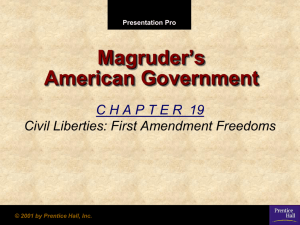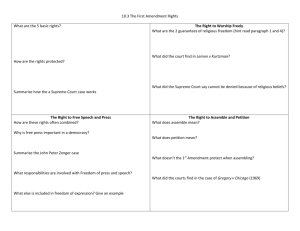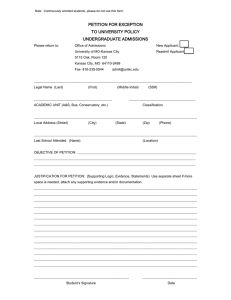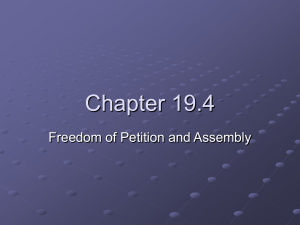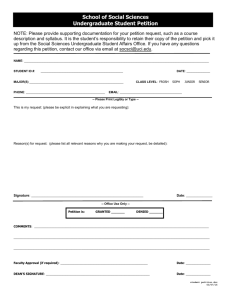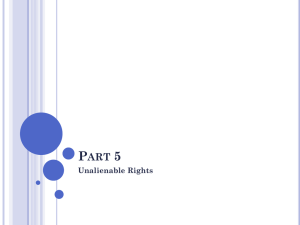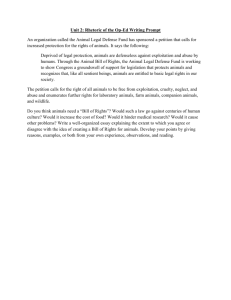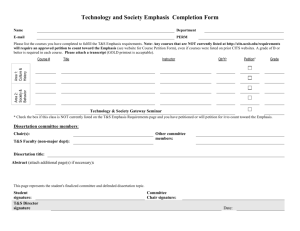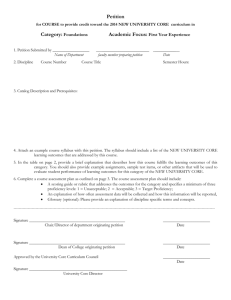Freedom of Assembly & Petition: Constitutional Rights
advertisement
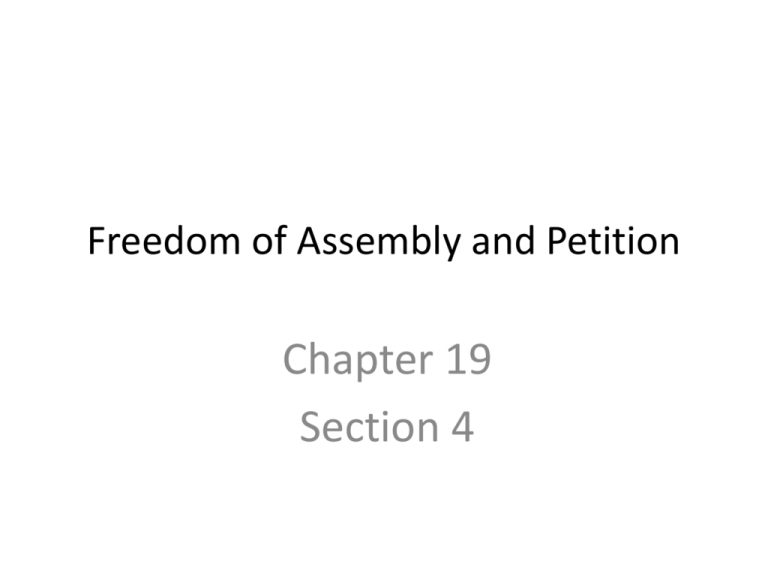
Freedom of Assembly and Petition Chapter 19 Section 4 The Constitution’s Guarantees The Constitution guarantees “…the right of the people peaceably to assemble, and to petition the Government for a redress of grievances.” •The right to assemble, or gather with one another to express views. •The right to bring views to the attention of public officials. Time-Place-Manner Regulations The government can make and enforce rules regarding the time, place, and manner of assemblies. - ex. is that public areas near schools and courthouses are restricted. •The govt’s rules must be content neutral. They can place restrictions of the basis of the time, place and manner of the assembly, but not on what the assembly is trying to say. Public Property Restrictions on the right to demonstrate: Cox v. New Hampshire, 1941: SC approved a State law requiring a license to hold a parade on a public street. Gregory v. Chicago, 1969: if demonstrators act peacefully, they cannot be held accountable for disturbances that arise because of their demonstration. Madsen v. Women’s Health Services, Inc., 1994, and Hill v. Colorado, 2000: the SC approved laws creating buffer zones around abortion clinics and people going in and out of them. Private Property The rights of assembly and petition do not give people a right to trespass on private property. States can interpret their constitutions to require owners of private property, such as shopping centers, to allow people to petition on their property. Freedom of Association The guarantees of freedom of assembly and petition include a right of association—the right to associate with others to promote causes. The freedom of association also means that a State cannot force an organization to accept members when that association would contradict what the organization believes in.

